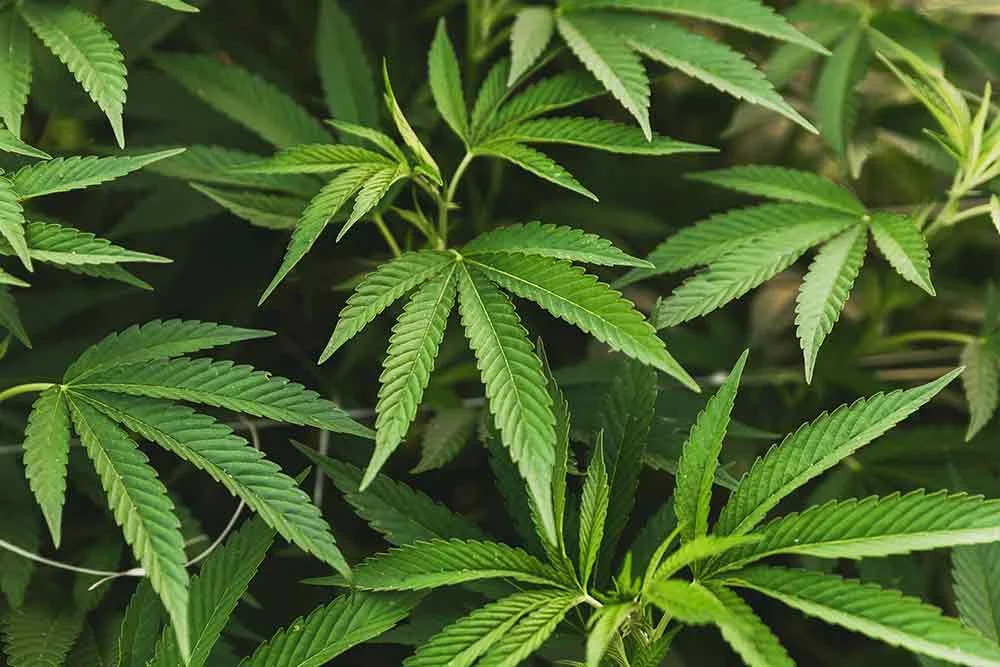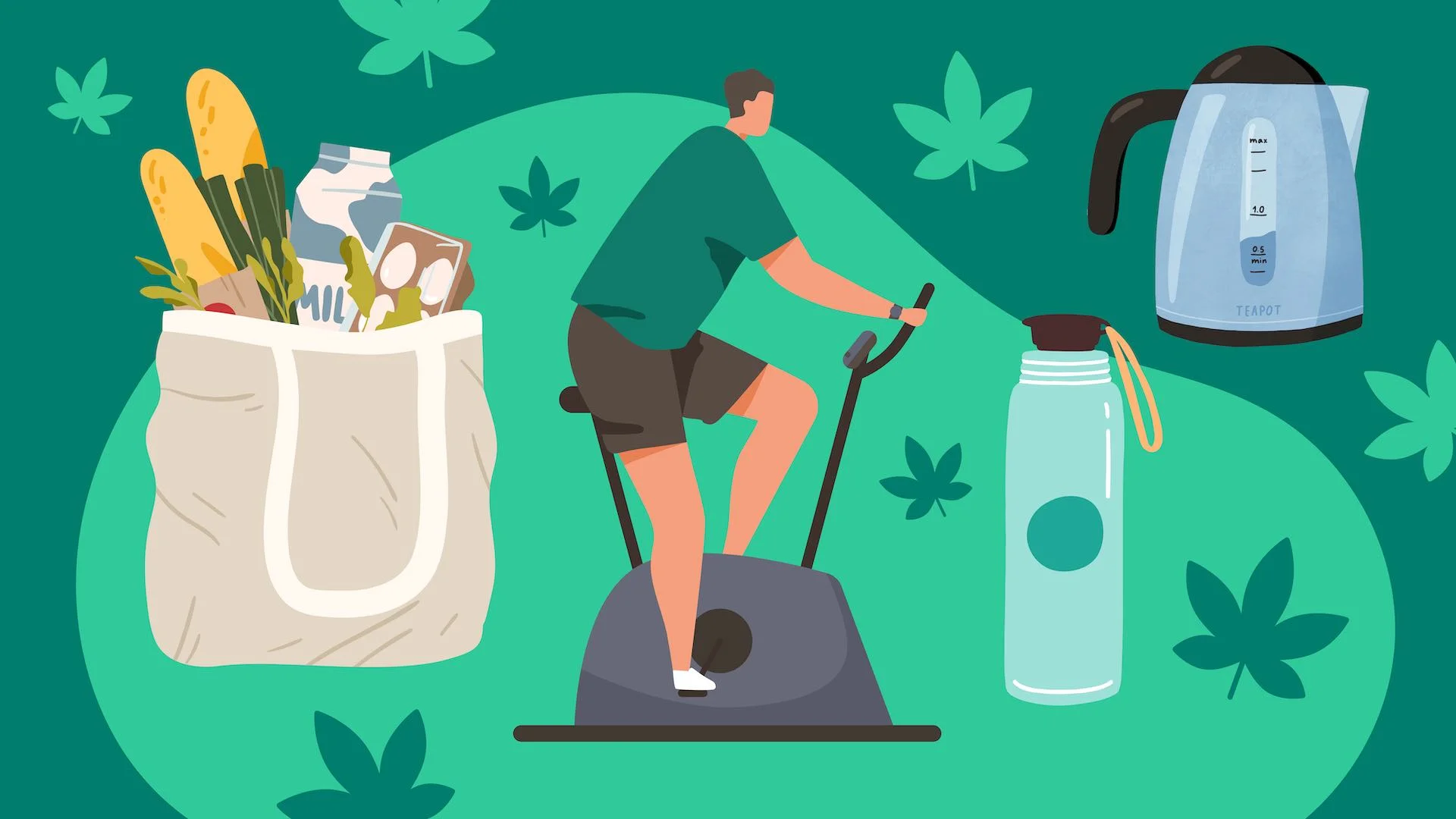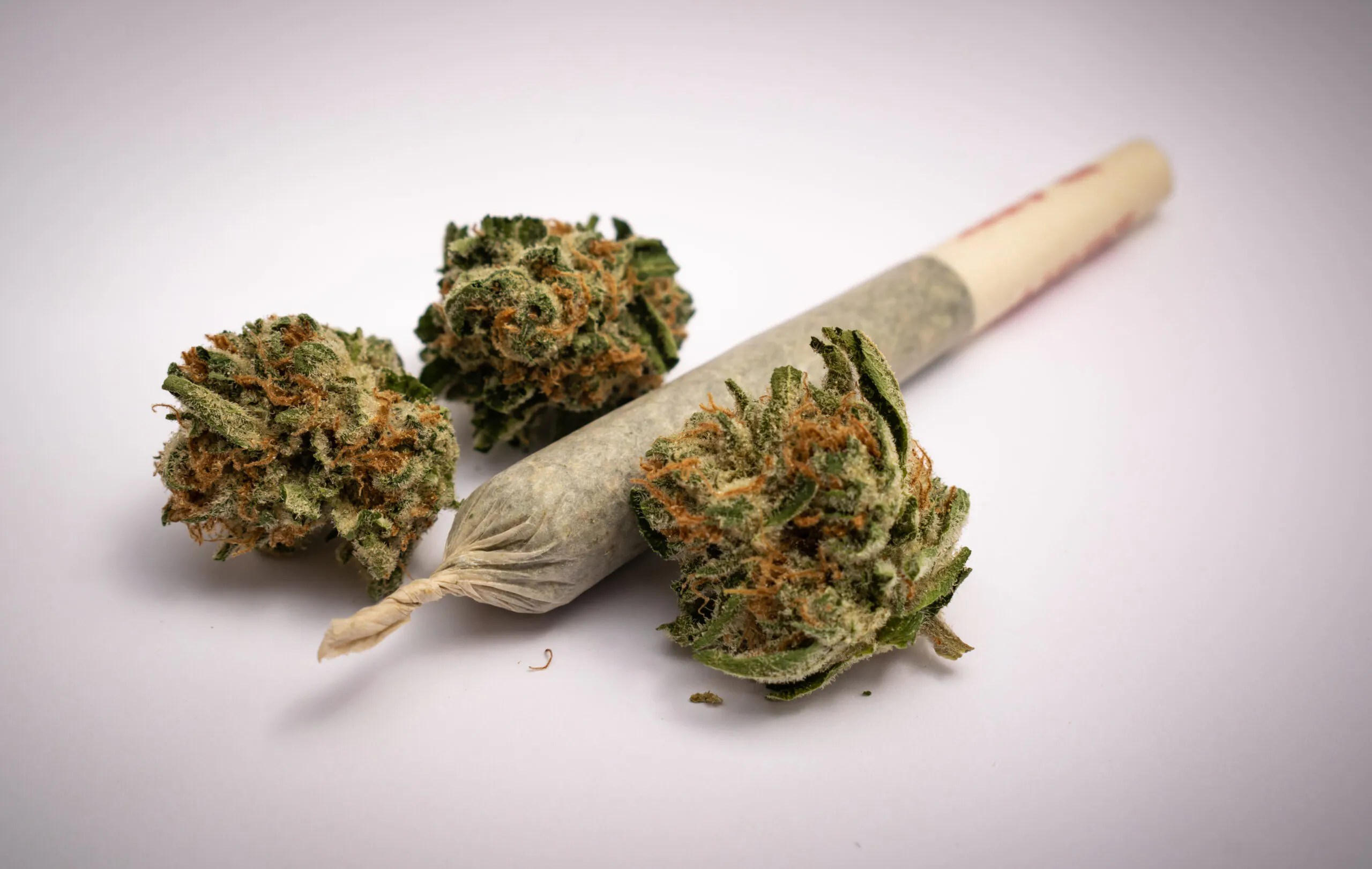
A Marijuana detox is a process aimed at eliminating traces of THC, the psychoactive compound in cannabis, from the body. While the idea of detoxing might evoke images of extreme measures or harsh cleanses, detoxing from weed is primarily about aiding the body’s natural processes of elimination. In recent years, with the increasing legalization and normalization of cannabis, there has been a growing interest in understanding how to detox from weed effectively. This article delves into the importance of marijuana detox, shedding light on why individuals might seek to cleanse their systems of THC and offering insights into the most effective methods to do so.
Detoxing from weed holds significance for various reasons. Firstly, it can be crucial for individuals subject to drug tests, whether for employment, legal, or personal reasons. Even in regions where cannabis is legal, certain professions or situations may require individuals to abstain from THC consumption, necessitating a clear system. Moreover, some individuals may find themselves experiencing negative effects from prolonged cannabis use, such as cognitive impairment or respiratory issues, prompting them to seek a clean slate for their health.
Additionally, for those looking to take a tolerance break or reset their relationship with cannabis, a detox period can provide a fresh start. The objective of this article is to provide comprehensive guidance on marijuana detox, encompassing both short-term strategies for immediate clearance and long-term lifestyle adjustments for sustained wellness. By understanding the importance of detoxing from weed and exploring effective methods to achieve it, readers can make informed decisions about their cannabis consumption and overall health.
THC, the primary psychoactive compound in cannabis, undergoes a complex metabolic process once ingested. Upon consumption, THC enters the bloodstream and travels throughout the body, interacting with various organs and systems. The liver plays a central role in metabolizing THC, breaking it down into metabolites that are then eliminated from the body through urine, feces, and sweat. This metabolic process occurs over time, with THC and its metabolites gradually decreasing in concentration as the body works to eliminate them. However, the rate at which THC metabolizes and clears from the system can vary widely among individuals, influenced by factors such as frequency of use, metabolism rate, body fat percentage, hydration levels, and exercise habits.
The frequency of cannabis consumption is a crucial determinant of how long THC remains in the body. Individuals who use cannabis infrequently or sporadically are likely to have lower levels of THC accumulation compared to those who use it regularly. Chronic or heavy users may experience a buildup of THC and its metabolites in their system, prolonging the detoxification process.
Metabolism plays a significant role in THC detoxification, as individuals with faster metabolic rates tend to eliminate substances from their bodies more rapidly. Factors such as age, gender, genetics, and overall health can influence metabolism rate. Those with a faster metabolism may process and eliminate THC more efficiently than individuals with slower metabolic rates.
THC is lipophilic, meaning it binds to fat molecules and can accumulate in adipose tissue. As a result, individuals with higher body fat percentages may retain THC and its metabolites for longer periods compared to those with lower body fat percentages. This is because THC is released from fat cells back into the bloodstream over time, prolonging its presence in the body.
Hydration plays a crucial role in facilitating the elimination of THC metabolites through urine. Adequate hydration helps maintain optimal kidney function, allowing for the efficient excretion of toxins from the body. Conversely, dehydration can impair kidney function and hinder the detoxification process, leading to prolonged clearance times for THC and its metabolites.
Regular exercise can aid in THC detoxification by promoting metabolism, improving circulation, and inducing sweating. Physical activity helps burn fat and mobilize THC stored in adipose tissue, facilitating its elimination from the body. Additionally, exercise stimulates the lymphatic system, which plays a role in removing toxins and waste products. Incorporating regular exercise into one’s routine can thus support the detoxification process and hasten the clearance of THC.
Short-term detox methods are geared towards immediate actions taken after cannabis consumption to help expedite the elimination of THC from the body. After consumption, individuals may employ strategies such as increasing fluid intake to promote urination and hydration, which can aid in flushing out THC metabolites. Additionally, engaging in physical activity or sweating through exercise or sauna sessions shortly after cannabis use may help accelerate the detoxification process by promoting the release of THC stored in fat cells.
Medium-term detox methods involve approaches that span over several days to weeks and focus on more structured detoxification techniques. Detox programs tailored specifically for cannabis users may incorporate dietary supplements, herbal remedies, and specialized regimens designed to support liver function and enhance toxin elimination. Furthermore, adopting dietary changes such as incorporating fiber-rich foods, antioxidant-rich fruits and vegetables, and lean proteins can aid in detoxification by promoting overall health and supporting metabolic processes.

Long-term detox strategies encompass lifestyle modifications and ongoing practices aimed at maintaining a clean system over an extended period. Lifestyle modifications may include reducing or abstaining from cannabis use, adopting a healthier diet and exercise routine, managing stress levels, and ensuring adequate hydration. Continued monitoring of cannabis consumption habits and implementing maintenance strategies, such as periodic detox regimens or incorporating detoxifying foods and supplements into one’s daily routine, can help sustain the benefits of detoxification and support long-term wellness goals. By integrating these long-term strategies into daily life, individuals can establish habits that promote overall health and well-being while effectively managing THC detoxification.
Hydration is a fundamental aspect of weed detoxification, as it aids in flushing out toxins and promoting overall bodily functions. Drinking an adequate amount of water is essential for maintaining proper kidney function, which plays a crucial role in eliminating THC metabolites through urine. Additionally, herbal teas and detox drinks can complement water intake by providing additional hydration while offering detoxifying properties. Herbal teas such as dandelion, nettle, and green tea are known for their diuretic properties, which can help increase urine production and facilitate toxin excretion from the body. Incorporating these hydrating beverages into one’s daily routine can support the detox process and promote overall hydration levels.
Exercise is a powerful tool for weed detoxification, as it helps stimulate circulation, increase metabolism, and induce sweating, all of which aid in the elimination of THC and its metabolites from the body. Engaging in regular physical activity not only promotes overall health but also accelerates the detox process by mobilizing THC stored in fat cells and promoting its excretion through sweat.

Furthermore, sauna sessions and detox baths can complement exercise by promoting sweating and facilitating toxin release through the skin. Saunas help open up pores, allowing for the elimination of toxins, while detox baths, often containing ingredients such as Epsom salts or essential oils, can help draw out impurities and promote relaxation. Incorporating exercise and sweat therapy into a weed detox regimen can enhance its effectiveness and support overall wellness.
Dietary adjustments play a significant role in weed detoxification by providing essential nutrients and supporting metabolic processes. High-fibre foods such as fruits, vegetables, whole grains, and legumes help promote digestion and regular bowel movements, aiding in the elimination of toxins from the body. Fibre binds to toxins in the digestive tract, preventing their reabsorption into the bloodstream and facilitating their excretion through feces. Additionally, adopting an antioxidant-rich diet consisting of colorful fruits and vegetables, nuts, seeds, and herbs can help protect cells from oxidative stress and support liver function, which is essential for detoxification. By incorporating these dietary adjustments into one’s daily meals, individuals can optimize their weed detox efforts and promote overall health.
Natural supplements can complement weed detoxification by providing essential vitamins, minerals, and herbal extracts that support liver function, enhance detoxification pathways, and promote overall well-being. Vitamins and minerals such as vitamin C, vitamin E, selenium, and zinc play vital roles in antioxidant defense and detoxification processes within the body. Herbal supplements such as milk thistle, dandelion root, and burdock root have long been used in traditional medicine for their detoxifying properties and liver-supporting effects. These supplements can be taken as capsules, tinctures, or teas and can help enhance the body’s natural detoxification mechanisms. Incorporating natural supplements into a weed detox regimen can provide additional support for optimal detoxification and overall health.
Lifestyle changes are integral to a successful weed detox, as they address underlying factors that can influence detoxification outcomes and promote overall well-being. By incorporating stress management techniques, prioritizing sleep hygiene practices, and seeking social support and accountability, individuals can optimize their detox journey and set the stage for long-term success.
Stress can hinder the body’s ability to detoxify effectively by triggering hormonal responses that can impede metabolic processes and compromise immune function. Therefore, incorporating stress management techniques is crucial for supporting weed detoxification. Practices such as meditation and mindfulness can help individuals cultivate a sense of calm and relaxation, reducing stress levels and promoting mental clarity. Similarly, engaging in yoga and breathing exercises can help alleviate tension in the body, enhance circulation, and promote detoxification by facilitating the release of toxins through breath and movement.
Quality sleep is essential for overall health and well-being, including the body’s ability to detoxify efficiently. During sleep, the body undergoes essential processes of repair, regeneration, and toxin elimination, making adequate rest crucial for supporting weed detoxification. Establishing a regular sleep schedule and adhering to consistent sleep hygiene practices, such as creating a relaxing bedtime routine, minimizing exposure to screens before bed, and ensuring a comfortable sleep environment, can help optimize sleep quality and promote the body’s natural detoxification processes.
Social support and accountability play vital roles in successful weed detoxification by providing individuals with encouragement, motivation, and resources to navigate the challenges of detoxification. Seeking support from friends and family members who understand and respect one’s detox goals can offer invaluable emotional support and encouragement throughout the process. Additionally, joining support groups or online communities of individuals undergoing similar detox journeys can provide a sense of belonging, camaraderie, and accountability. Sharing experiences, insights, and strategies with others can help individuals stay motivated, overcome obstacles, and celebrate successes along their detox journey.
When embarking on a marijuana detox journey, it’s essential to recognize that not all detox methods are created equal, and what works for one person may not work for another. Tailoring detox methods to individual needs involves considering factors such as frequency of cannabis use, overall health status, personal preferences, and lifestyle constraints. For some individuals, a gradual reduction in cannabis consumption coupled with lifestyle modifications may be sufficient, while others may require more structured detox programs or professional guidance. By taking into account individual circumstances and needs, individuals can identify the most suitable detox methods that align with their goals and preferences, increasing the likelihood of successful detoxification outcomes.

In the quest for quick and effective weed detoxification, many individuals turn to detoxification products such as teas, supplements, cleanses, and kits. While these products may promise rapid results, it’s essential to understand their pros and cons before incorporating them into a detox regimen. Pros of detoxification products include convenience, accessibility, and the potential to support the body’s natural detoxification processes.
However, it’s crucial to approach detox products with caution, as their efficacy may vary, and some products may contain ingredients that could be harmful or have adverse effects. Additionally, relying solely on detox products without addressing underlying lifestyle factors may not lead to sustainable detoxification outcomes. Therefore, individuals should weigh the pros and cons of detoxification products carefully and consider incorporating them as part of a comprehensive detox plan rather than relying solely on them for detoxification.
One of the most valuable resources for individuals undertaking a weed detox journey is consulting with healthcare professionals, such as physicians, naturopaths, or addiction specialists. Seeking professional guidance offers several benefits, including personalized assessment and recommendations tailored to individual needs, access to evidence-based treatment options, and ongoing monitoring and support throughout the detox process. Healthcare professionals can provide valuable insights into detoxification methods, help manage withdrawal symptoms, and address any underlying medical or psychological issues that may impact detoxification outcomes. Additionally, healthcare professionals can offer support and guidance in developing coping strategies, navigating challenges, and maintaining long-term sobriety post-detox.
Navigating the world of marijuana detox can be challenging, especially with the abundance of misinformation and misconceptions surrounding detoxification methods. By debunking common myths and clarifying misconceptions, individuals can make informed decisions about their weed detox journey and adopt strategies that are safe, effective, and sustainable.
One prevalent myth surrounding weed detox is the belief in the efficacy of detox products, such as detox drinks, pills, or kits, in rapidly eliminating THC from the body. While these products may claim to flush out toxins and cleanse the system in a short period, their effectiveness is often questionable. Many detox products rely on diuretics or laxatives to promote urination or bowel movements, which may temporarily reduce THC levels in urine or feces but do not address the underlying metabolic processes involved in detoxification. Additionally, some detox products may contain potentially harmful ingredients or have adverse effects on health. It’s essential for individuals to approach detox products with skepticism and prioritize evidence-based, holistic approaches to weed detoxification.
Another common misconception is the idea of rapid detox programs that promise quick and effortless elimination of THC from the body. These programs often involve extreme measures such as fasting, intense exercise regimens, or harsh cleanses, with the aim of rapidly purging toxins from the system. However, rapid detox programs can be unsafe and may have adverse effects on health, including dehydration, electrolyte imbalances, and metabolic disturbances. Moreover, rapid detox methods do not address the underlying factors contributing to THC accumulation in the body and are unlikely to produce lasting results. Instead of seeking quick fixes, individuals should focus on adopting sustainable detoxification methods that support the body’s natural processes and promote long-term wellness.
One of the most critical misconceptions surrounding weed detox is the notion that detoxification is a one-time event or short-term process. In reality, detoxification is an ongoing, multifaceted process that involves supporting the body’s natural ability to eliminate toxins and promoting overall health and wellness.
Sustainable detoxification methods prioritize long-term lifestyle changes, such as maintaining a balanced diet, staying hydrated, engaging in regular exercise, managing stress, and getting adequate sleep. These methods not only support the body’s detoxification processes but also contribute to overall health and well-being, reducing the risk of chronic disease and promoting vitality and longevity. By embracing sustainable detoxification methods, individuals can achieve lasting results and cultivate a healthy lifestyle that supports optimal detoxification and overall wellness.
Detoxification from weed is often accompanied by numerous myths and misconceptions that can misguide individuals seeking to cleanse their systems of THC. One prevalent myth revolves around the efficacy of detox products, such as teas, supplements, and cleanses, in rapidly eliminating THC from the body. While these products may claim to hasten the detox process, their effectiveness is often unsubstantiated and can vary greatly depending on individual factors. Rapid detox programs also perpetuate the misconception that THC can be quickly and effortlessly eliminated from the body through extreme measures or harsh cleanses.
However, these programs can be both physically and mentally taxing and may not offer sustainable solutions for long-term detoxification. Instead, emphasizing the importance of sustainable detoxification methods, such as hydration, exercise, dietary adjustments, and lifestyle modifications, can help individuals achieve lasting results while prioritizing their overall health and well-being.
In conclusion, marijuana detox is a process that requires understanding, commitment, and patience. Throughout this article, we’ve explored the fundamentals of weed detoxification, including how THC metabolizes in the body, factors affecting detoxification, timeline of detox methods, tips for effective detox, lifestyle changes, and common myths. It’s crucial to recognize that detoxing from weed is not a one-size-fits-all endeavor, and the journey may vary for each individual.
However, by implementing evidence-based strategies, making sustainable lifestyle changes, and seeking support from peers and professionals, anyone undertaking a weed detox journey can achieve success. Remember, the goal of weed detox extends beyond eliminating THC from the body; it’s about reclaiming control over one’s health, well-being, and overall quality of life. As you embark on this journey, stay committed, stay positive, and remember that achieving overall wellness is within your reach.
Order weed online in Winnipeg. Puff Wow makes it easy to buy Cannabis online with our secure checkout and fast delivery.
Winnipeg, Manitoba
Canada

